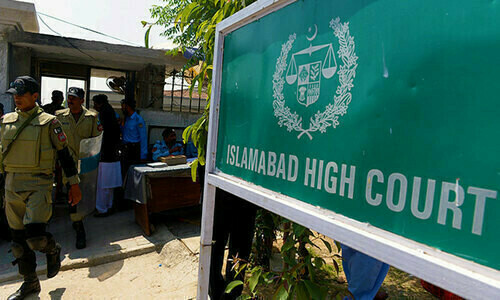NEW DELHI: When Indian Prime Minister Narendra Modi recently met top aides to prepare the annual Independence Day address, some senior bureaucrats warned him against mentioning Balochistan.
Referring to Balochistan in such a prominent speech would be a highly unusual move bound to ratchet up tensions between the nuclear-armed neighbours more used to trading barbs over the disputed Himalayan region of Kashmir, they said.
According to a senior official at the meeting in early August, the more hawkish politicians in the room, angered by what they saw as Pakistan’s “trouble-making” in India-held Kashmir, thought differently, and so did Modi.
By siding with the hawks, and including Balochistan in his address, Modi signalled a more muscular approach towards Pakistan.
That dims prospects of bringing the bitter rivals closer together to reduce economic pain and the risk of more violence, an issue that will be high on US Secretary of State John Kerry’s agenda when he lands in New Delhi on Monday for a three-day visit.
“The bureaucrats suggested that talking about Balochistan is a good idea but may be the Independence Day speech was not a good platform for it,” said the official.
Defence Minister Manohar Parrikar “rejected these ideas”, while Home Minister Rajnath Singh “supported him (Parrikar) by saying we should do everything to silence Pakistan”, the official said.
India’s Ministry for External Affairs declined to comment on the debate about Modi’s speech. His office, and the defence and home ministries, did not respond to requests for comment.
Speaking from the ramparts of the 17th-century Red Fort in Delhi on Aug 15, Modi thanked the Baloch people for their support after a number of “separatist” leaders published videos praising him for acknowledging their cause previously.
He also lashed out at “supporters of terrorism”, in a more familiar broadside against Pakistan.
Crossing the red line
Pakistan has seized on Modi’s speech as evidence that India has a hand in the troubles in Balochistan.
A senior foreign ministry official in Islamabad said Modi had “crossed the red line”.
Outside Modi’s entourage, questions are now being asked about what strategic reward, if any, India can hope to gain by raising the geopolitical stakes.
“Politically, it’s much less useful in terms of Pakistan using this as evidence of Indian meddling. It gives them ammunition,” said Daniel Markey, a South Asia expert at Johns Hopkins University in Washington, referring to Modi’s mention of Balochistan.
But he added: “There is a strategic utility in looking a little unhinged, in sending that message.”
A New Delhi-based diplomat from a major power with traditionally close ties to India said it would only escalate tensions.
Two senior Indian officials said Modi had become frustrated with Pakistan’s latest attempt to draw wide international attention to the Kashmir question and the current clampdown, and to take the matter to the United Nations.
Published in Dawn, August 27th, 2016













































